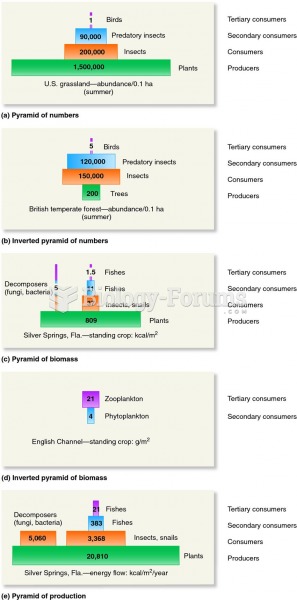Answer to Question 1
The four micro nutrient deficiencies of particular concern are vitamin A deficiency, iron-deficiency anemia, iodine deficiency, and zinc deficiency.
Vitamin A deficiency
An estimated 500,000 children become partially or totally blind as a result of insufficient vitamin A.
Compromises the immune systems of approximately 40 percent of the developing world's children under five years old, leading to early death of an estimated one million children each year.
More than 40 developing countries are now reaching 70 percent or more of their young children with at least one vitamin A supplement capsule every year.
Efforts to date are estimated to be saving the lives of more than 300,000 young children annually and preventing many hundreds of thousands of cases of irreversible blindness.
Iron-deficiency anemia
Iron-deficiency anemia in infancy and early childhood is associated with decreased cognitive abilities and resistance to disease.
Iron deficiency in the 6- to 24-month age group impairs the mental development of 40-60 of the developing world's children.
Severe cases cause the deaths of an estimated 50,000 young women a year during pregnancy and childbirth.
Is so widespread in adults that it lowers the productivity of workforces.
An international movement to fortify all wheat flour with iron and folic acid is beginning to gain momentum.
Iodine deficiency
Iodine deficiency is the major preventable cause of mental retardation worldwide.
Worldwide, 700 million peopleespecially in mountainous regionsare estimated to have goiter, while over 16 million suffer overt cretinism.
Iodine deficiency in pregnancy causes as many as 20 million babies a year to be born mentally impaired.
Iodine deficiency has been halved from 30 to 15 percent due to sustained efforts to add iodine to the world's household salt.
Zinc deficiency
Zinc deficiency contributes to growth failure and weakened immunity in young children.
Zinc deficiency results in some 800,000 child deaths per year from diarrhea, pneumonia, and malaria.
Research demonstrates the usefulness of zinc supplements in treating diarrhea and reducing diarrheal mortality by 50 percent. The WHO, along with UNICEF, has issued a statement recommending use of zinc for 10-14 days for all episodes of diarrhea among children under age 5; however, the recommendation has not yet been widely adopted.
Answer to Question 2
Eat a variety of foods each day.
Eat foods that are higher in fiber, such as fresh fruits and vegetables, legumes, and whole-grain products.
Eat foods low in fat, saturated fats, trans fat, and cholesterol.
Grill, bake, or broil seafood in place of meat.
Consume the equivalent of 3 cups of milk daily.







